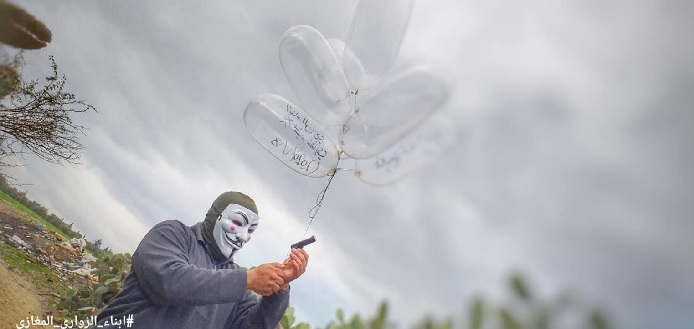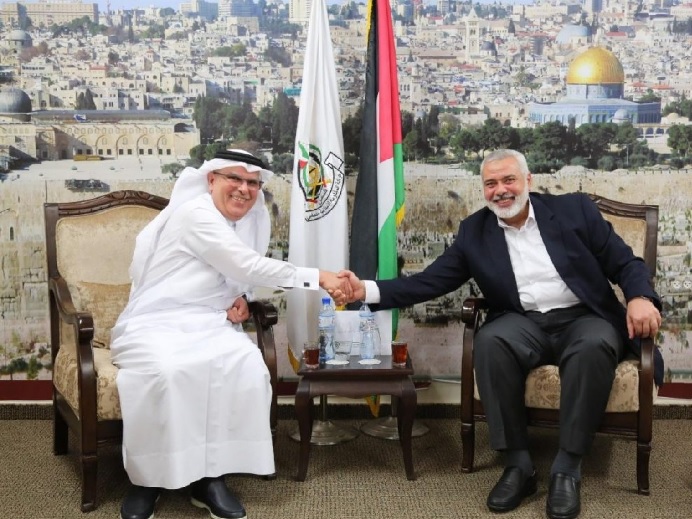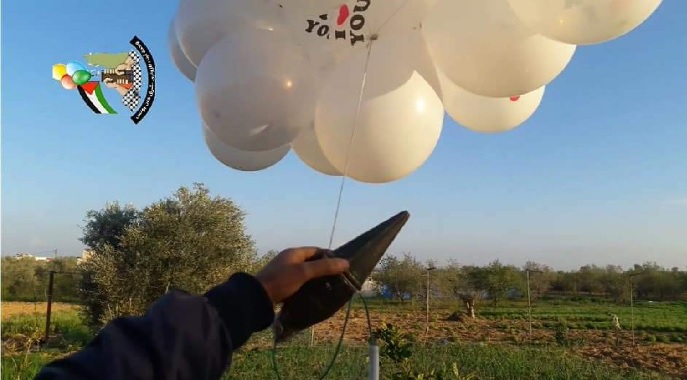
Since the beginning of last week, various militant groups in the Gaza Strip have resumed the launch of incendiary and explosive-laden balloons towards Israeli communities near the Gaza border.
In the Palestinian militant factions, these acts are done via groups with self dubbed names such as “Sons of Zawari” and “Descendants of Nasser.” All the units are named after important leaders in the militant factions.

The use of incendiary and explosive-laden balloons became a popular and low-tech method of conflict against IDF soldiers and Israeli communities near the Gaza border during most of 2018. Militants attach an incendiary device or IED at the end of a string which is tied to several helium-filled balloons. They repeat this with dozens of balloons and release them near the border with the intention they will fall on the Israeli side of the fence causing damage or casualties.

In the summer of 2019, Israel and Hamas, under Egyptian mediation, came to an understanding. Israel would allow millions in Qatari funds into the Gaza Strip, extend the fishing zone off the coast, allow an increase in fuel to be imported and the resumption of humanitarian projects.
In exchange, Hamas would cease violent activity during its weekly March of Return demonstrations along the border and the cessation of incendiary and explosive-laden balloon launches.
During the latter half of 2019, the understanding brought mostly peace to Gaza and southern Israel, especially compared to the previous year.

This all changed at the beginning of last week when the units announced they restarted their campaign of launching explosives towards Israel.
According to al-Akhbar daily language Arabic newspaper, the stalling of implementing agreements made in the understanding between Israel and Hamas including the increase in taxes imposed by Egypt for goods, is the cause for the resumption of the campaign by militant groups.
The IDF has retaliated militarily because of the launches. On January 16, the IDF stated; “Terrorists in Gaza launched explosive balloons at Israeli homes throughout the day. In response, an IDF attack helicopter just struck underground Hamas infrastructure. We won’t let Hamas terrorize Israeli civilians.”
What the IDF rarely does since this type of low-tech attack began in 2018, is to strike the cells launching the balloons.
An anonymous IDF officer told the FDD’s Longwar Journal that the reason behind the policy of infrequent attacks against the groups launching the balloons are several; identifying the cells operating near the border can be difficult. If an identification is made, a visual confirmation does not mean the people launching the balloons are militants, some may be civilians, or even children. If a cell is identified, and the IDF can positively confirm they are militants, the cost/benefit of attacking and eliminating the threat is not worth the risk of igniting a retaliatory act by militant groups. Also, the risk of inflicting collateral damage to civilian infrastructure can be too great to necessitate an airstrike.
There were several instances in 2018 where the IDF attacked a cell launching balloons from known militant positions causing casualties. Also, IDF drones are known to have launched missiles near the cells but have not directly targeted them. Although tactically effective at deterring the cell from launching anymore explosives in the short-term, it has not stopped the cells from continuing its activities overall.
As it has in the past, all sides will likely come to an agreement where all parties are satisfied. Hamas will continue to receive the assistance it needs to balance the needs of its citizens in the Gaza Strip and in return, Israel will receive quiet at the border as it focuses on threats it deems more serious.
